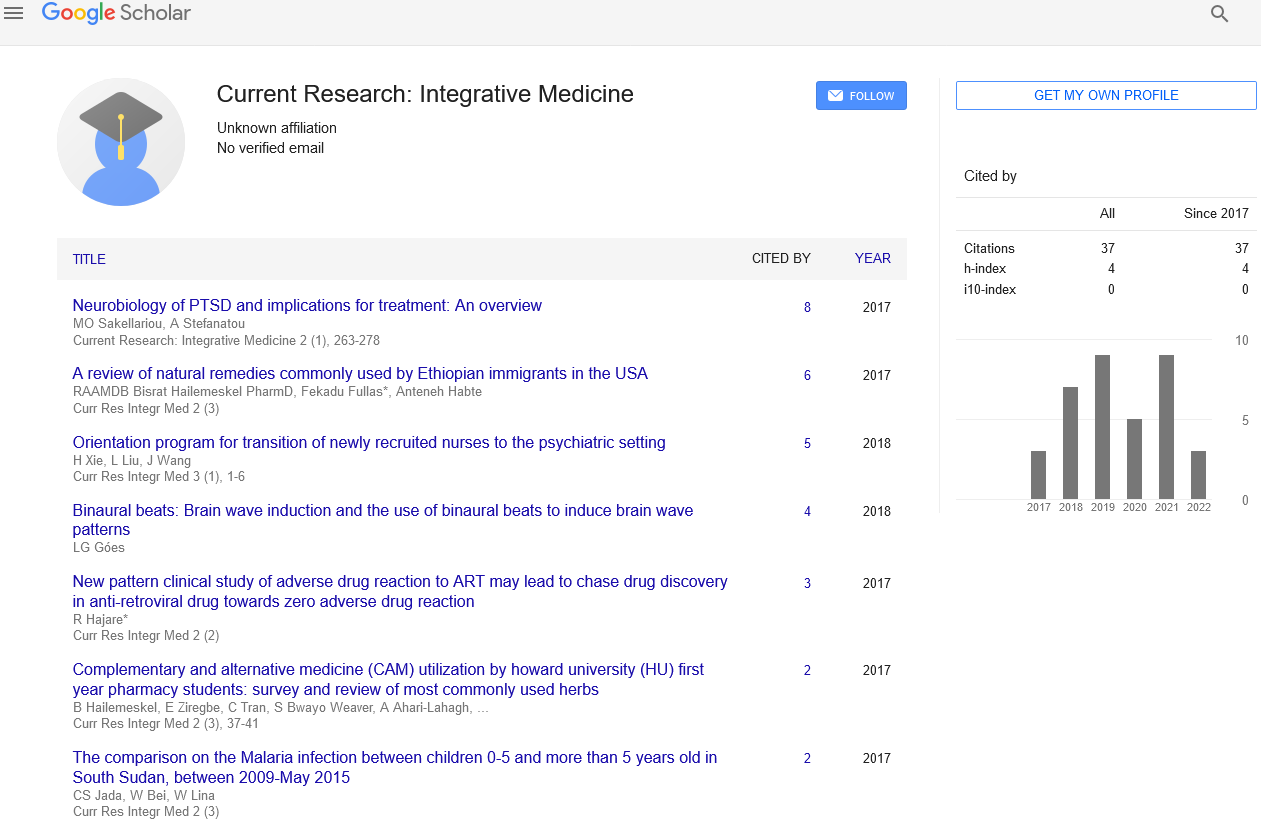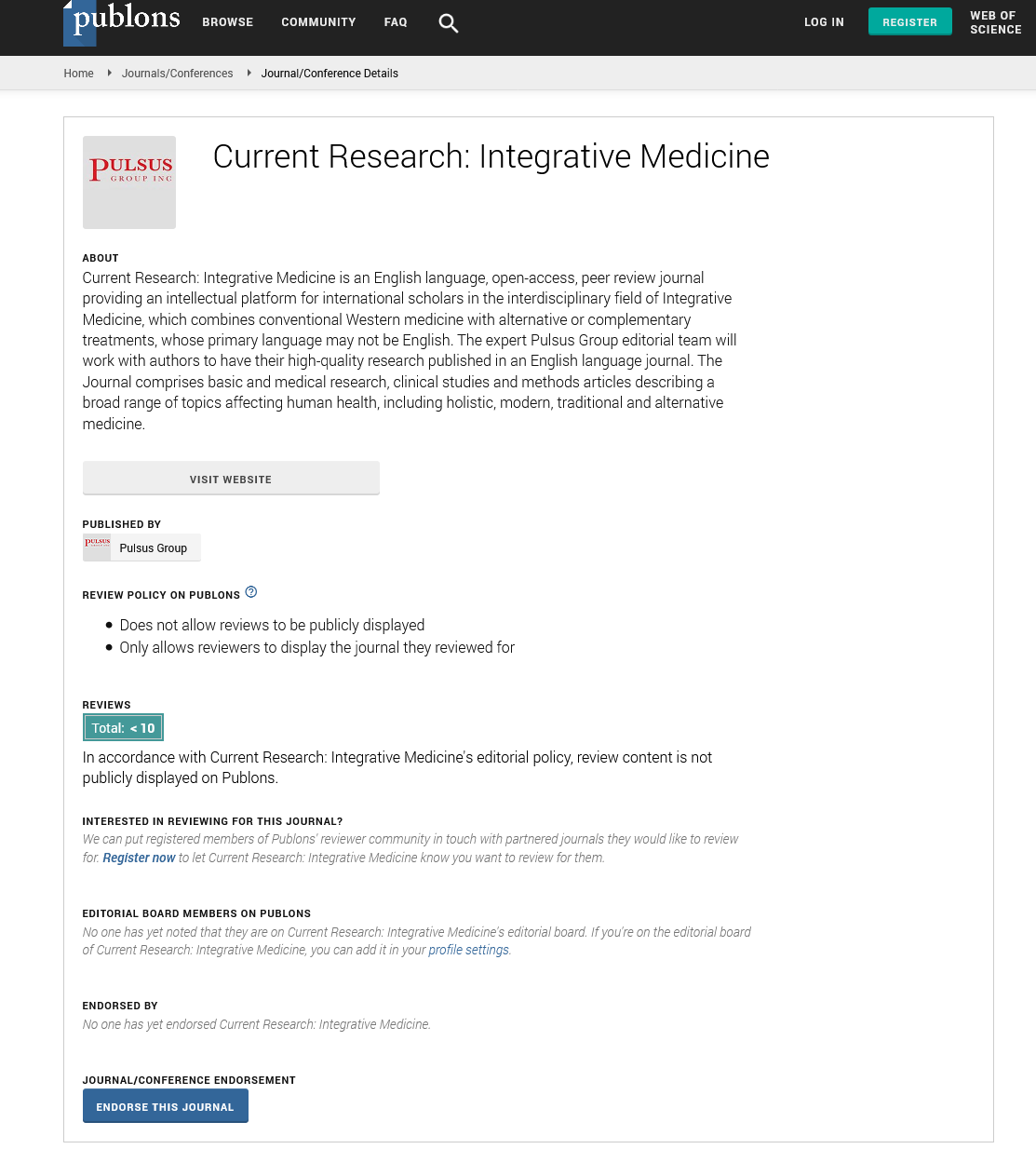
Sign up for email alert when new content gets added: Sign up
Abstract
The social and health gender differences in patients companion in the family medicine consultation
Author(s): José Luis Turabián*, Luis Enoc Minier-Rodriguez, Sandra Moreno-Ruiz, Francis Eliant Rodriguez-Almonte, Raul Cucho-Jove and Alejandro Villarin-CastroOBJECTIVES: The purpose of this study is to describe gender differences in patient’s companion, and their characteristics, in family medicine consultations. METHODS: A descriptive and prospective study in a family medicine office (Toledo, Spain) was carried out. For each patient and companion, the following variables were collected: age, gender, chronic illness, chief complaint, medications taken, social class, request for additional tests, kinship, social status and availability of companion. The bivariate comparisons were performed using the test of Chi squared, the Student t test, and the Mann- Whitney test. RESULTS: 104 companions to the patient in the family medicine office were obtained. Of these, 65 (62.5%) were female, and 39 (37.5%) male. In the female companions with regard to the male companions: there were 69% in the group of 40-64 years old vs. 49% (p = 0.02); were wife (34%) vs. husband (56%) (P=0.001); were unskilled workers in the 68% vs. el 43% (p=0.036); were workers in the 44% vs. 24% (p=0.036); had more diseases of the musculoskeletal system and connective tissue (44% vs. 21%; p=0,024) and were taking more medications of the musculoskeletal system (26,2% vs. 5,4% in male companions; p=0.014). CONCLUSION: There is a gender bias in the patient’s companion: she is a middle-aged woman, wife, with poor health, low social class, housewife or worker, accompanying a middle-class patient, male or student. Implicit stereotypes associating to female gender with providers of health continue to express themselves in accompany the sick in the family medicine office. Support interventions for companions of patients should take gender specific risk factors into account
Full-Text | PDF





